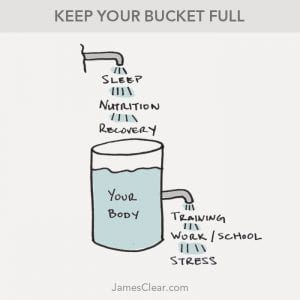Even ordinary life at university, despite being exciting, fun and life-expanding – has challenges to be overcome and demands to balance. However, during times of unpredictable change in the job market these challenges can be even greater.
These are some frequently heard concerns from students when starting their job or work experience search:
- How can I make sure that I do well in my studies but also get extra-curricular experiences like volunteering, and work experience?
- How do I get the confidence to even apply for opportunities that are so competitive? I don’t want to fail.
- How can I deal positively with rejections from applications and interviews – so I learn from them and move on?
- In a changing labour market – how can I adapt and stay positive despite additional challenges.
To move forward with any of the above, and to cope with other challenges in life that might come your way – we must develop resilience.
What is ‘resilience’?
The mental health charity Mind has some excellent resources to help become more resilient, their definition is:
‘Resilience is not just your ability to bounce back, but also your capacity to adapt in the face of challenging circumstances, whilst maintaining a stable mental wellbeing. Resilience isn’t a personality trait – it’s something that we can all take steps to achieve.’
One model to consider is the ‘resilience reservoir’. The positive and life-enhancing activities which enhance your well-being provide the reservoir in the tank, so that when stressful experiences drain us the aim is that you never run empty.
An aim would be to ensure that the positive lifestyle habits might be regular and build up your reserves. Hopefully then reducing the impact that stresses might have on your life.
How do you fill up your resilience reservoir?
According to Mind, you can:
- make some lifestyle changes so there is a balance in your life, time management and learning to say no if you need to
- look after your physical health: enough sleep, good diet, exercise
- give yourself a break: develop interests and hobbies outside your studies, take a holiday and have a change of scene, reward yourself for your achievements, don’t expect perfection – forgive yourself when needed.
- build your support network: make time for friends and family, having fun and laughter can really help.
Employers look for evidence of resilience
Employers are also interested in seeing evidence that you have resilience. This is partly because after investing a lot of time and money into your recruitment they don’t want you to resign in the early weeks after the first challenging day at work if something doesn’t go right.
Despite stressful circumstances being very hard to deal with – the toughest times can also provide the greatest opportunities to demonstrate adaptive capacity and resilience.
Employers may ask about your resilience in an interview, for example:
Tell us about a time when you coped under pressure? (Competency-based interview questions)
Answers may demonstrate times when you have had to adapt quickly to news ways of studying online, as well as managing multiple deadlines on your course. Or continued to deliver in other areas of your life, such as societies – perhaps through being assertive and not giving up at the first hurdle.
How do you cope under stress? (Strengths based interview questions)
Here you might reflect honestly on what you do to relax and what hobbies you enjoy. Employers are increasingly keen to get to know you as an individual and hear about your coping mechanisms. Self-awareness is a positive trait for preventing burn-out and stress building up in the work place.
More help
The Careers Service runs a workshops and webinars on the topic of resilience, please see mycareer events.
The Wellbeing Service at the University of Bristol has a number of ways to support you, both in a wellbeing crisis and in terms of maintaining and enhancing your general wellbeing.
As mentioned in this blog Mind has some great resources:
Developing resilience – how to manage stress – link to the Mind website.

